Hurricane season is fast approaching. While there are some predictions that there will be fewer storms than previous years, all it takes is one bad storm to make it a bad year, especially if your home isn’t prepared. You can’t control the weather, but you can prepare your home to minimize damages. Investing time now to make sure that your home and HVAC system are prepared for hurricane season will pay off later while you are helpless during the storm. Use this checklist as a guide to help you prepare your home and HVAC system:
Pre-Hurricane Season preparation
Make sure that you have tarps, plywood and hurricane straps to cover and secure any large outdoor equipment that can’t be moved to shelter. In addition to covering and securing your outside HVAC equipment, you should also secure or bring inside any loose objects from your yard. Hurricanes are notorious for picking up loose items such as lawn furniture or grills and throwing them. Securing these loose items helps to protect your home (and your neighbor’s home) from expensive damages.
Have a licensed Jacksonville area HVAC technician come out and inspect your system and recommend any additional measures that should be taken in preparation. Be sure to stock up on these non-HVAC specific items in case of a power outage, as well.
- First aid kits
- Drinking water
- Non-perishable food items
- Waterproof storage containers
- Towels
- Emergency blankets
- Batteries
- Flashlights
- Battery operated radios and televisions
Avoid the crowds and start stocking up on these items now to ensure that you can find everything you will need. When looking at battery operated radios, look for NOAA weather radios, as they will be broadcasting emergency information for your area, in the event of a power outage.
Before the storm
Turn off your HVAC system. If you are using a window air conditioning unit, unplug it from the wall, remove the unit and ducts and seal the opening. You should also shut off the breakers going to the unit to help prevent damage. Since the system will be out of commission during the storm, it is advised to cool the home as much as possible before hand.
Cover any outside equipment with a tarp or plywood, and tie it down to prevent debris from getting inside the unit and possibly causing damage. You can also help secure your outside AC unit with hurricane straps to give added protection. Air conditioner units often have the capability to attach hurricane straps for added protection from strong winds, since it is required by most building codes. These hooks need to be regularly inspected for signs of corrosion and wear. This is especially true if your AC unit is installed on an elevated platform, as these units are more susceptible to being lifted off the platform and carried off by the storm.
Power surges are another potential hazard to your HVAC equipment during storms. An electric surge can take out your AC unit as well as any other electronic device that you keep plugged in during the storm. A point of entry surge protector can be installed to protect your whole house, as well as individual surge protectors for your other important devices like your computers or televisions. Power surges come not only from lightning strikes, but from downed power lines as well. It is best to go ahead and unplug any electronics that you can as surge protectors don’t always stop the surge completely.
Since water delivery can be disrupted due to damaged water filtration plants, make sure that your bathtub (if you have one) is caulked sufficiently, and fill it up with water. If you are going to be riding out the storm at home, this can help provide water for plumbing necessities until water service is restored.
After the storm passes
Before you turn your air conditioner back on, do a full inspection of the unit. Check the exterior for any damage and the inside to make sure that debris hasn’t infiltrated the unit. If everything looks alright and the unit isn’t sitting in a puddle of water, turn it on. If you are in doubt as to whether it is safe to turn the system back on, you should contact a certified technician to come out and inspect the air conditioning system. This could help prevent costly damage to the unit from debris or even wildlife that may have decided to take refuge in air conditioner or other internal issues that a homeowner might not recognize.
For more expert information about preparing your HVAC system for the hurricane season, or other home comfort-related questions, contact Snyder Air Conditioning, Plumbing & Electric today. We have been proudly providing professional service and hurricane protection tips to the Jacksonville, Florida area for over 40 years.


